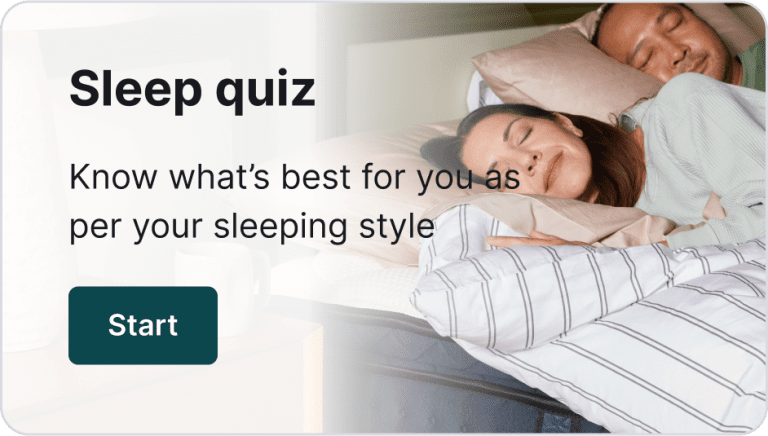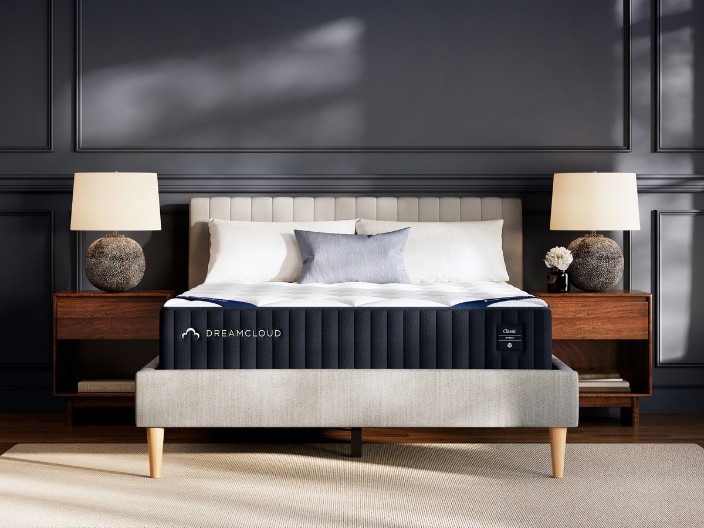Best Nap Length: How Long Should I Nap?
Share
Fact checked
Reviewed by experts
Updated
December 22, 2022
Quick read
4 mins to read
List of Content
One-third of American adults take naps. Some days, we all need a nap to get rid of tiredness and fatigue. However, imagine being more tired than ever after taking a nap? A nap shorter or longer than the ideal time can make you feel groggy. What is the best nap length?
Continue reading to learn more about how to power nap, optimal nap length, ideal nap time, and everything else about napping.
How Long Should a Nap Be?
How long should you nap? How to take a power nap? A nap duration is more important than you think it is.
An ideal nap length for most people is 10 to 20 minutes.
If you take a nap for 20 minutes (optimal nap time), you wake up feeling refreshed and alert. Napping more than this can make you feel more tired than ever. However, if you need more rest, the other ideal duration is 90 minutes.
Different Nap Lengths
Now that you know the importance of nap duration. Let’s learn more about different nap lengths and types of naps.
1. Power Nap (10 – 20 Minutes Nap)
What is a power nap? This is the most common nap among adults. Studies show that this is the perfect nap time to get refreshed. Sleeping under 20 minutes means that you will still be under the first stage of sleep, i.e., light sleep.
Therefore, you will still be aware of your surroundings and won’t wake up feeling dizzy. How long should a power nap be for adults? Power nap length 10 to 20 minutes. It is the best amount of time to nap.
2. Groggy Nap (30 Minutes Nap)
When you sleep for longer than a power nap (20 to 30 minutes), you are likely to enter stage 2 of sleeping. In stage two, you detach from your surroundings and delve into a deeper stage of sleep. If you wake up in stage two, you may experience sleep inertia. In sleep inertia, one feels dizzy, tired, and disoriented.
3. Longer Nap (60 Minute Nap)
With a 60 minute nap, you enter into stage 3 of sleep. Stage 3 is a critical stage as in this stage, your memory consolidates, and information is moved to the neocortex.
But waking up in this stage will have the same consequences as in stage two; you will experience sleep inertia and tiredness.
The best length for a nap is 10-20 minutes. It is the perfect nap length because you wake up feeling refreshed from the nap and not dizzy.
4. The REM Nap: 90 to 120-Minute Nap
Taking a REM nap means you will complete the sleep cycle for once. It’s excellent as you will get all the benefits of all the sleep stages without feeling groggy. If you are sleep-deprived and have some time in hand, it’s best to take a 90-120 minutes nap.
Although, taking a longer nap may stop you from falling asleep quickly at night.
Napping vs. Sleeping: What Is the Difference?
Often a short nap turns into a 6-hour long sleep. No matter how similar they sometimes feel, napping and sleeping are different from each other. Let’s learn about the difference between nap and sleep.
The significant differences between the two are duration and sleep cycle. As you sleep, your brain moves through all four stages of sleep. Whereas during a nap, your brain shifts to one or two stages of sleep. Naps provide a quick recharge, whereas sleep completely reenergizes you.
When you nap, it’s recommended that you wake up before the deep sleep stages and you don’t wake up feeling tired. Whereas, as you sleep for complete rest, the deep sleep stage plays a significant role. This is why it is recommended sleep duration is 7-9 hours daily. Read this article to learn about how long you can go without sleep?
Benefits of Napping
Undoubtedly, napping during the day has numerous benefits. It’s good for your physical as well as mental health. Here are some benefits of napping.
1. Increases Alertness
One of the most important reasons for napping is alertness. Waking up from a nap gives you similar energy to caffeinated drinks. Napping improves your memory and learning capacity as well.
2. Reduces Stress
Today, sleep deprivation is a common problem in the world. A significant drawback of sleep deprivation is stress. Constant stress can lead to other issues like anxiety, depression, and heart disease.
By taking a nap in the afternoon, you can have some sleep and reduce stress. Good quality sleep can reduce cortisol levels (stress hormone).
3. Improves Mood
Studies have shown that napping increases frustration tolerance and boosts productivity and mood. When you are tired, you become irritated. Therefore, getting rest can improve your mood.
4. Sharpens Cognitive Skills
When you get up from a nap, you are sharper and focused. Napping improves focus, memory, and cognitive flexibility.
As per a study conducted by NASA on the effect of napping on military pilots and astronauts, those who took naps improved performance and alertness by 38% and 100%, respectively.
Read more about sleep restoration and wake deterioration.
How to Take a Short Nap Without Oversleeping
Sometimes napping duration can get out of hand. How to take a quick nap?
Step 1: Find a comfortable environment.
Find a dark and quiet place so that you don’t spend time waiting to fall asleep.
Step 2: Nap during the early afternoon
Napping after 3 pm can ruin your night sleep schedule. The best nap time is before 3 PM.
Step 3: Set an alarm
Setting the alarm will ensure you don’t extend the napping time.
Step 4: Stick to a routine.
Take naps during the same time every day so that you can wake up quickly at the same time.
Conclusion
Adequate sleep is vital for your well-being. If you don’t get sufficient sleep at night, you should take an afternoon nap. Although, make sure it does not extend more than 20 minutes to prevent waking up feeling tired than ever.
FAQs
Napping once or twice a week can reduce the risk of heart disease by 48%. However, napping for more than 60 minutes is bad for your heart. Napping for more than an hour can increase the risk of heart disease and early death.
Waking up during the REM and deep sleep stage can make you feel tired. That’s why it is recommended to nap for 10-20 minutes, or 90 minutes if you are sleep-deprived.
Early afternoon (before 3 pm) is the time to take naps. Taking a nap in the evening can affect your night sleep schedule.
Harms of napping
- Sleep inertia
- Trouble falling asleep at night
- Heart disease
The best nap length for an all-nighter is 10-20 minutes. Power naps can make you feel refreshed.
If you are sleep-deprived, you should aim for a 90-minute nap. In a 90 minutes nap, you complete all the four stages of sleep, and you wake up feeling more energized than ever.
This website does not offer medical advice nor professional medical services; rather, it is provided solely for educational, informational, and/or entertainment purposes. Individuals seeking medical advice should consult a licensed physician. The information provided should not be used for diagnosis or treatment of any condition, disease, or injury. When you have a medical condition, you should always talk to licensed doctor or other certified medical professional. You should never delay seeking professional medical advice or treatment based on the contents of this website. Call 911 or immediately go to the nearest emergency room if you think you may have a medical emergency. The contents of this website are provided “as-is”, Sleep Authority and its parent, subsidiaries, affiliates, employees, contributors disclaim any warranty of the information contained herein. Please contact using contact form to report any errors, omissions, misinformation, or abuse.
Sleep Authority is brought to you by Resident, the company that brings you Nectar, DreamCloud, Awara, Wovenly, Bundle, Home Well Designed and Level Sleep.




